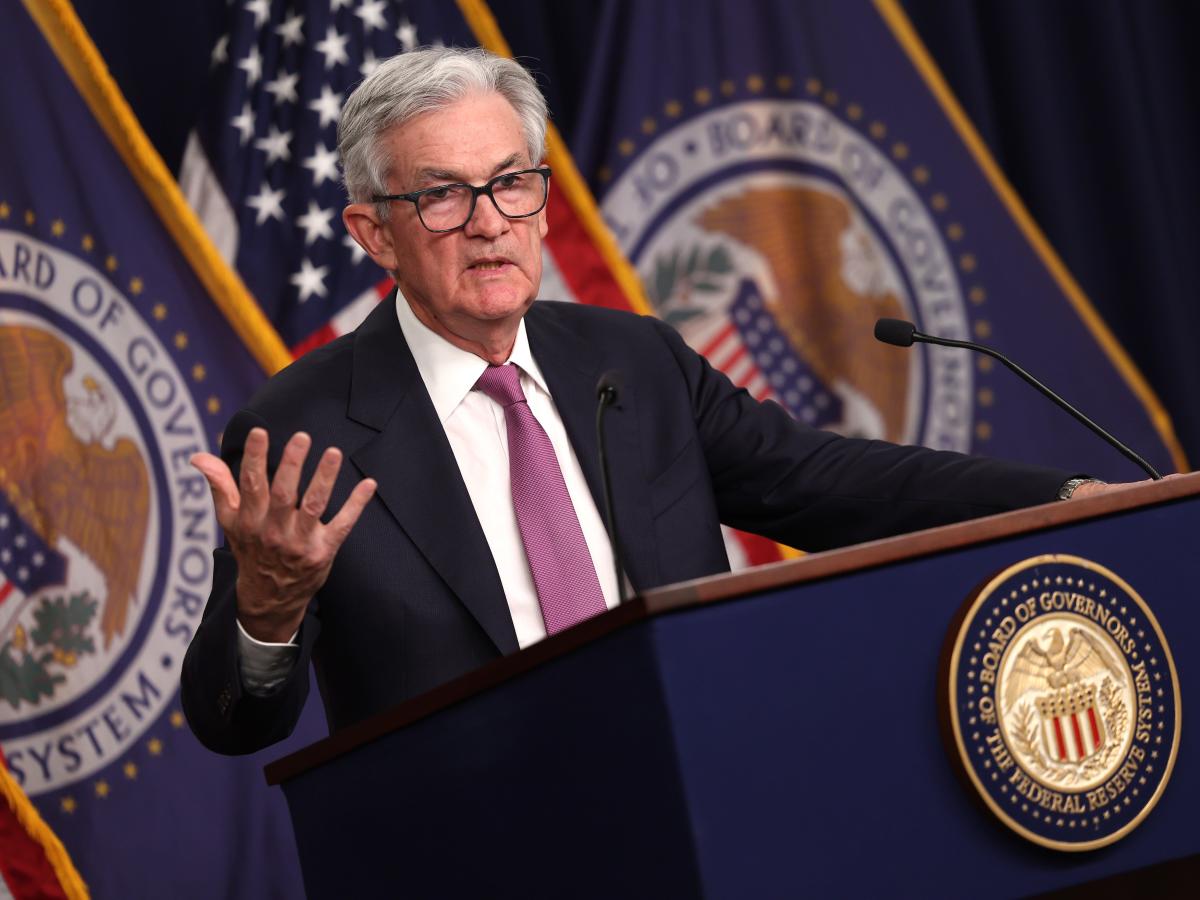Jerome Powell, Chairman of the Federal Reserve Board. Kevin Dietsch/Getty Images
-
Persistent inflation and robust retail activity indicate the Federal Reserve has failed to dampen demand, analysts said.
-
That means investors should expect tighter policies and more weakness in the markets.
-
“We wouldn’t be shocked if we saw a 15% to 20% drop from current levels that would take us below the previous cycle.”
Persistent inflation and resilient retail activity indicate the Federal Reserve has failed to dampen demand, meaning investors should expect tighter policy and further weakness in markets, analysts said.
Although the Federal Reserve has already raised interest rates by 450 basis points since last year in a bid to cool the economy and get inflation under control, January made it clear that demand remains strong.
Last month, retail sales rose 3%, beating estimates of a 1.9% increase. And consumer prices rose 6.4% while producer prices rose 6%, both of which also had the best prospects.
“The Fed wants to dampen demand – it’s not happening. Retail sales are a perfect example. The consumer is still out there,” said Victoria Fernandez, chief market strategist at Crossmark Global Investments, in an interview with CNBC.
“So if you’re looking to curb demand to bring down inflation, these positive numbers, which we would normally celebrate, tell us that the Fed and other central banks will continue to strengthen.”
The data reinforced signs the economy was still running too hot after January’s payroll report showed a staggering 517,000 new jobs were added.
Still, such resilience will help the US economy avoid a deep recession, said Fernandez, who predicts a mild downturn instead. On the stock exchange, she does not expect a sell-off like 2022, but sees a “pretty flat year”.
“Have that balanced view because we’re just going to be restless for most of the year I think,” she added.
To be sure, Fed Chair Jerome Powell has repeatedly signaled his willingness to raise interest rates further. But the market is only now beginning to catch up, having previously hoped the Fed would aim to cut rather than hike rates in 2023.
“I think it’s very clear that liquidity in the market, consumer savings and optimism about the job market continue to support consumption,” said Lisa Shalett, chief investment officer at Morgan Stanley Wealth Management, in a separate Interview on CNBC.
“And that’s really problematic for the Fed, because one reason central banks are raising interest rates to fight inflation is to cool demand. And that demand cooling on the consumer side of the economy, on the service side of the economy, just isn’t coming through yet.”
Both strategists advised investors to add fixed income to their portfolios and be tactical in stock picking. Shalett encouraged a diversified portfolio focused on growth and value stocks.
But unlike Fernandez, Shalett has a more gloomy view of the market outlook overall.
“We talked about the potential for some sort of boom-bust scenario,” she said. “We wouldn’t be shocked if we saw a 15% to 20% drop from current levels that would take us below the previous cycle.”
Read the original article on Business Insider
Don’t miss interesting posts on Famousbio










